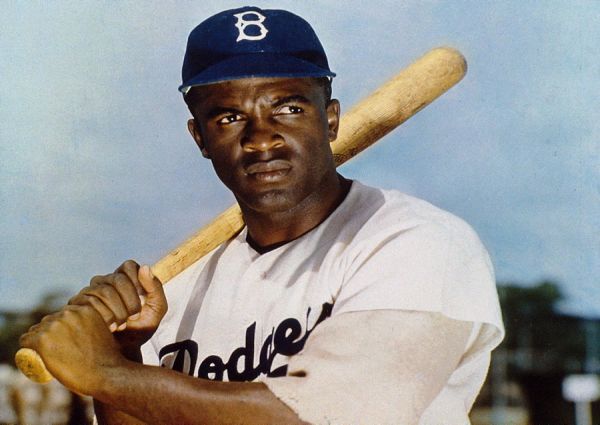Without Branch Rickey, the world of baseball, and sports for that matter, would be totally different. A flamboyant, cigar-smoking, Bible-quoting, 63-year-old midwesterner whose ordinary speech often resembled a sermon, Rickey was the president of the Brooklyn Dodgers. He was all about winning, and in order to achieve the highest level of success he believed you had to get the best ballplayers…regardless of what they looked like. In 1943, Rickey began to put into place an effort to recruit black ballplayers for the Dodgers. This was astonishing because there had been until that point an unwritten, but absolutely unbreakable ban on black players, who had been relegated to segregated leagues called the Negro Leagues.
One player Rickey had his eye on was a young man by the name of Jackie Robinson. He thought he was talented enough as an athlete and liked the fact that Robinson was educated and abstained from alcohol. However, Robinson's temperament both attracted and worried Rickey. His refusal to buckle under to discrimination and strength of character were exactly what Rickey wanted. But Robinson's explosive aggressiveness concerned Rickey: while it fueled his athletic performance, it also made him vulnerable to being provoked by the intense racism he was sure to experience as the first black player in the major leagues. Rickey strongly believed that it would be necessary for Robinson to contain himself if the experiment was to succeed. More than a decade before Martin Luther King Jr. developed techniques of nonviolent protest as a weapon against the violence of southern racism, Rickey urged the same approach on Robinson, testing him in a now-famous exchange on August 28, 1945, at Dodgers headquarters in Brooklyn. It was the first time they had met.
Rickey talked for a while about his extensive search and his investigation of Robinson both as an athlete and a person. He then revealed the true purpose of his search: not to hire Robinson for a new Negro League team sponsored by the Dodgers, but to hire him to play for the Dodgers. Robinson reportedly was both stunned and skeptical, and later said it had taken him a long time to convince himself that Rickey meant it.
For three hours, Rickey harangued Robinson … graphically illustrating the difficulties Robinson might face. He portrayed the hostile teammate, the abusive opponent, the insulting fan, the obstinate hotel clerk. Rickey challenged him with racial epithets and verbally transplanted him into confrontations. In the face of this onslaught Robinson finally responded, "Mr. Rickey, do you want a ballplayer who's afraid to fight back?" [Rickey] "No, I want a player with guts enough not to fight back."
Harrison Ford as Branch Rickey in 42: Trailer



